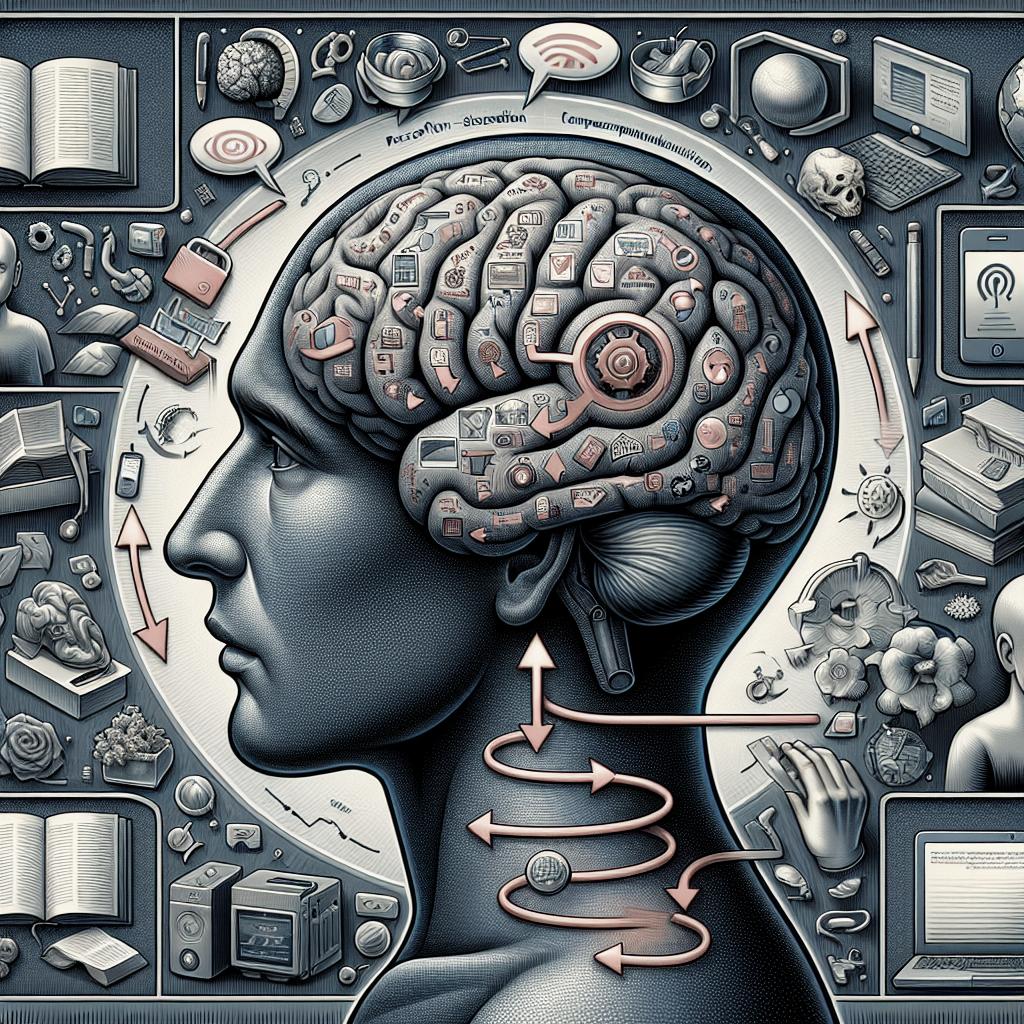HTML content for the blog: “`html
In our fast-paced digital world, the ability to process information effectively is paramount. Whether you’re juggling multiple tasks at work, learning new skills, or simply trying to stay on top of current events, the way you handle and process information can greatly impact your productivity and well-being. This blog post delves into several strategies that can help you process information more efficiently. From using relevant research tools to maintaining physical fitness, practicing paraphrasing, adopting time-blocking techniques, taking breaks, and even illustrating concepts, these actionable tips are designed to enhance your cognitive capabilities. Additionally, understanding the importance of processing less information and minimizing information overload will help you maintain clarity and focus in today’s information-rich environment.
1. Use research tools to find information easily
The internet is filled with vast amounts of data and information. Leveraging specialized research tools can streamline the process of finding relevant information. Tools like Google Scholar, PubMed, and JSTOR provide access to scholarly articles that are peer-reviewed and reliable. If you’re often researching, investing time in learning how to use these tools efficiently can save you hours.
Additionally, browser extensions like Evernote Web Clipper and Pocket allow you to save articles and webpages for later reading. By organizing your research with these tools, you reduce the time spent sifting through irrelevant content and focus on what truly matters.
2. Stay physically fit
Physical fitness has a direct impact on cognitive function. Regular exercise increases blood flow to the brain, which helps improve memory, concentration, and overall mental agility. Activities such as yoga, running, or even a brisk walk can alleviate stress and keep your mind sharp.
Moreover, the benefits of physical fitness extend to better sleep, reduced anxiety, and higher energy levels—all of which contribute to more effective information processing. Incorporating some form of physical activity into your daily routine can create a positive feedback loop that enhances both physical and mental health.
3. Paraphrase what you learn
One effective way to embed new information into your memory is to paraphrase what you’ve learned. By putting concepts into your own words, you force your brain to reinterpret and understand the material deeply. This exercise helps in solidifying your comprehension and retention.
Paraphrasing can be part of a study group or individual learning sessions. When discussing concepts with others or even writing summary notes for yourself, try to explain what you’ve learned as if you were teaching it. This way, you identify gaps in your understanding and address them promptly.
4. Time block your day
Time blocking is an effective time management technique that involves dividing your day into blocks of time dedicated to specific activities. Instead of multitasking, you focus entirely on one task during a designated time block, which enhances productivity and reduces cognitive overload.
This method also helps in handling information more efficiently. By scheduling specific time blocks for research, reading, and other information-heavy tasks, you minimize distractions and ensure that each task gets the mental focus it deserves. Tools like Google Calendar or Trello can be helpful for organizing your time blocks.
5. Take breaks
Continuous work without breaks can lead to mental fatigue, reducing your ability to process information effectively. Schedule regular breaks to allow your brain some downtime. Techniques such as the Pomodoro Technique, where you work for 25 minutes and then take a 5-minute break, can significantly enhance your cognitive performance.
During breaks, try to engage in activities that relax and rejuvenate you, such as stretching, listening to music, or even a quick outdoor walk. These breaks act as a mental reset, making it easier to focus and process information when you return to work.
6. Create an illustration
Visual aids can be incredibly powerful in helping you process information. Creating diagrams, mind maps, or infographics allows you to visualize complex information in an organized manner. This method not only aids in comprehension but also helps in retaining the information longer.
Tools like Canva, MindMeister, or even a simple paper and pen can be used to create informative illustrations. The act of drawing out ideas forces you to engage with the material actively, thereby enhancing your understanding and recall.
Processing less is just as important as processing quickly
In an age where we’re constantly bombarded with information, it’s essential to understand that processing less can be just as important as processing quickly. Focusing on fewer, more relevant pieces of information can drastically improve your cognitive load and reduce stress.
Prioritize quality over quantity by actively filtering out unnecessary information. This strategy helps you focus better on what really matters and ensures that you’re not wasting mental resources on irrelevant data.
Minimize information overload
Information overload occurs when one is exposed to more information than the brain can process at a given time. This can lead to analysis paralysis, decreased productivity, and increased stress levels. Minimizing information overload involves setting boundaries on information consumption.
Consider techniques like media fasting, where you intentionally take breaks from consuming news or social media. Additionally, setting specific times for checking emails, messages, and updates can reduce the constant influx of information and allow you to process what you do receive more effectively.
Josh Chapman
| Strategies | Description |
|---|---|
| Use research tools | Employ specialized tools and browser extensions to organize and locate relevant information efficiently. |
| Stay physically fit | Engage in regular exercise to boost cognitive function, memory, and overall mental agility. |
| Paraphrase what you learn | Reinterpret and explain concepts in your own words to enhance understanding and retention. |
| Time block your day | Divide your day into specific time blocks for focused work to improve productivity and reduce cognitive overload. |
| Take breaks | Schedule regular breaks to avoid mental fatigue and enhance cognitive performance. |
| Create an illustration | Use visual aids like diagrams and mind maps to organize and understand complex information better. |
| Processing less information | Prioritize relevant information to reduce cognitive load and improve focus. |
| Minimize information overload | Set boundaries on information consumption to avoid analysis paralysis and stress. |
“` This structure covers a comprehensive approach to processing information better, addressing various angles from physical well-being to practical time management techniques.

